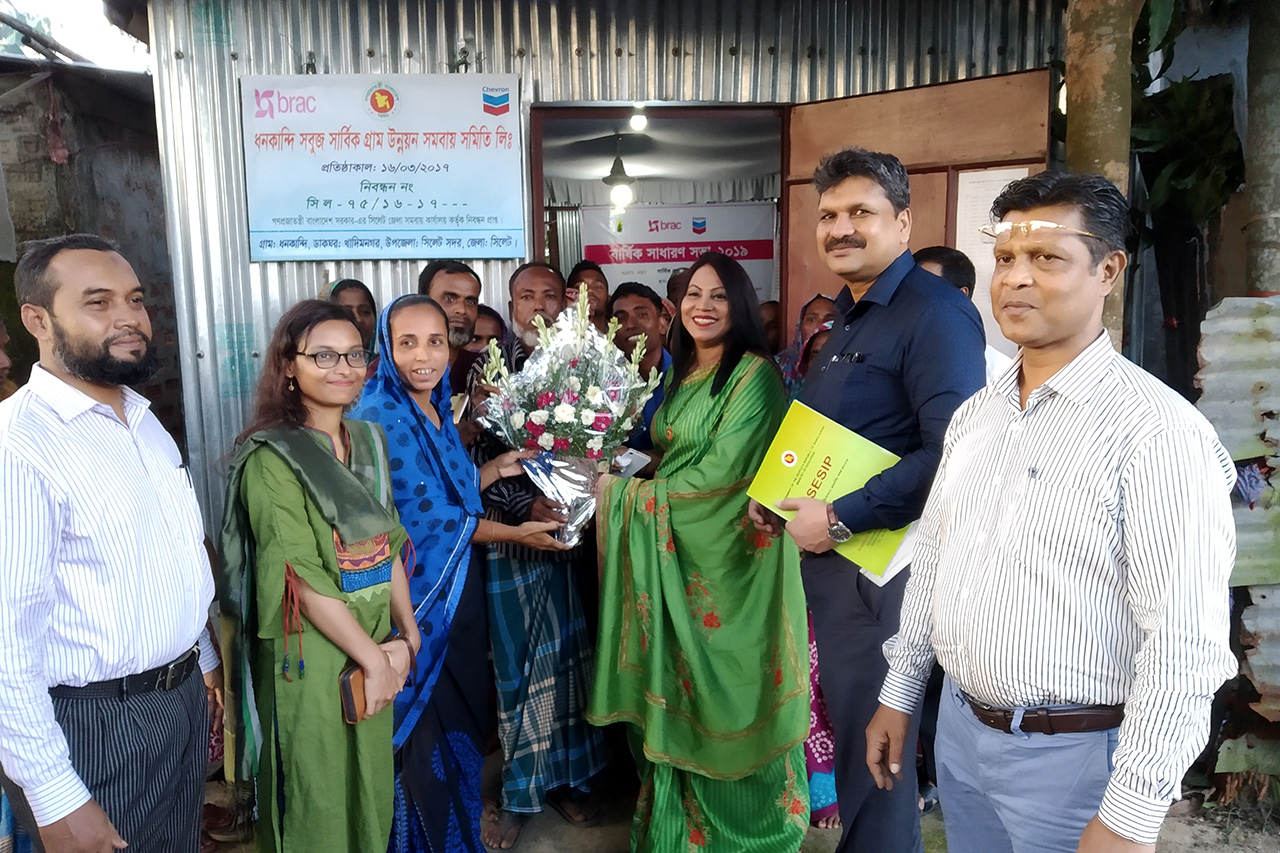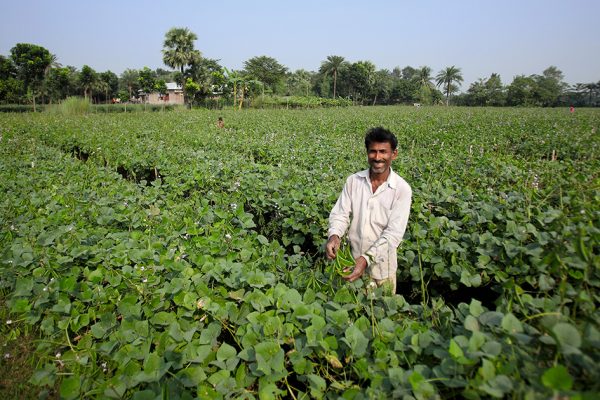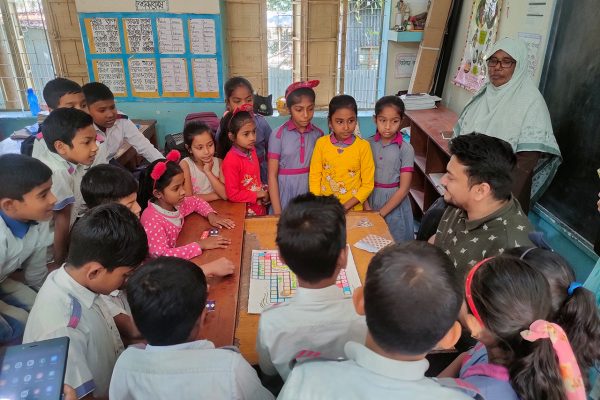Annual General Meetings in the most unexpected places
Reading Time: 3 minutes
Village development organisations under the Jibika project are community-led platforms to improve the lives of people living around Chevron-operated gas fields. Read how their annual general meetings are paving the way for their organisational security.
What comes to mind when we hear annual general meetings? Big, swanky conference rooms, men in expensive suits presiding over discussions about their company’s shares?
In northeastern Bangladesh, 110 village organisations hold their own AGMs. The functions of the meetings are no different from those held by corporations, but there is something distinct about how these organisations function, and how they conduct their meetings.
Village development organisations (VDOs) are community-led cooperatives, registered with the government’s Department of Cooperatives. They have their own fund, democratically selected executive committees, and trained members on different organisational skills. They are what steer the Jibika project, an initiative that works to uplift the socio-economic conditions of people living in areas around Chevron-operated gas fields in Bangladesh.
Jibika’s VDO members aspire to achieve sustainability through their governance and management. In terms of the growth of their cooperatives, they have come a long way – from institutionalising the organisations to independently conducting their AGMs.
As for their own lives, the transformations are nothing short of incredible.
The members of these organisations under the Jibika project once had very little voice in the decision-making of their homes and communities. Today, they are part of the local governance, running these community-led groups and making a positive impact together.
The AGMs conducted by the VDOs are not your run-of-the-mill meetings. While conventional meetings can be long and drab, these are packed with enthusiasm. Members greet each other warmly in a festive atmosphere, and get right down to business.
The meetings are arranged and conducted by each organisation’s executive committee. As soon as the meeting’s agenda is revealed, the guidelines for conducting AGMs are read out loud as per Cooperatives’ compliance, followed by a discussion on audit results. The members set out a blueprint for each operation, and plan for the year to come.
Everyone dives deep into topics including new members’ enrolment target, loan ceiling, and fund mobilisation. One look at the decision-making processes of their operation reveals the members’ soaring dedication and confidence in their leadership roles.
The distribution of dividends is a driving force of strengthening members’ confidence in their cooperatives. During the distribution of dividends, something unheard of takes place – all the members break into cheers for the recipients. The excitement for fellow members’ prosperity is what sets these organisations’ annual meetings apart. The envelopes of dividends not only hold the reward for their year-long efforts and investment, but also store pride.
“Being married at an early age, I did not get the chance to continue my education. I had no earnings of my own. We struggled to meet the family’s expenses. I decided to make a change – I joined Jibika, bought shares and took loans from my VDO. The project’s support helped me turn things around for myself and my family in just two years.” – Runa Begum, highest dividend earner at the Jahanpur Shapla Sarbik Gram Unnayan Samabay Samiti Limited VDO.
The AGMs are a great platform for the members to engage with stakeholders including local elites, local government representatives, government and cooperative officials, who often attend the meetings.

Last year, Deputy Secretary from the Ministry of Local Government Rural Development and Cooperatives, Farhana Haque, joined an AGM at Dhonokandi VDO. Her words of encouragement amplified the VDO members’ enthusiasm.
Under the Jibika project, 110 village development organisations have been institutionalised and registered since 2016. This project was a collaborative socio-economic development initiative of Chevron with BRAC and its local implementing partner IDEA. Upon successful completion of phase I, phase II of the project was launched to focus on achieving sustainability of the organisations by 2022.
Conducting independent AGMs is a cornerstone to the vision of developing sustainable village cooperatives. From reviewing past activities to laying down plans for the future independently, these cooperative’s AGMs have achieved tremendous progress and success.
Ahona Azad Choyti is Manager, Communication and Outreach, Jibika Project, BRAC. Luba Khalili is Deputy Manager, Communications, BRAC.





